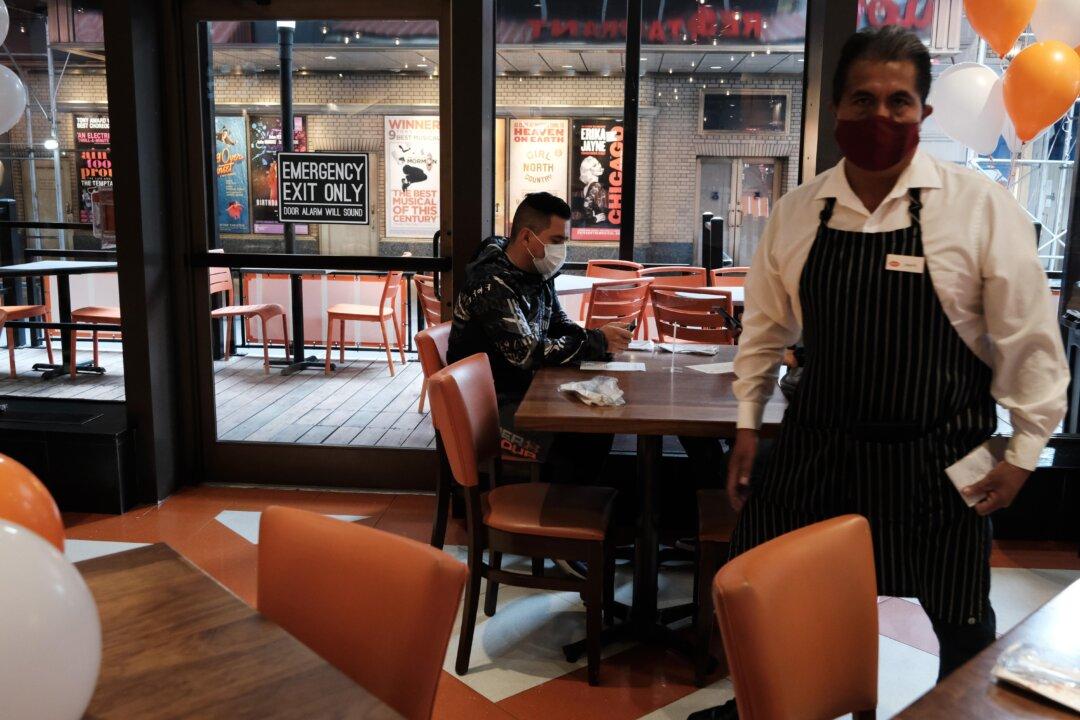New Yorkers lacking COVID-19 vaccination will still be allowed to pick up food at restaurants for takeout and use outdoor seating despite new rules barring them from entering restaurants, gyms, and entertainment venues, according to a rule guide released by the city government.
The rules go into effect on Aug. 17, requiring the targeted businesses to demand proof of at least one vaccination dose from both staff and anybody entering their establishment over the age of 12. It exempts “individuals entering for a quick and limited purpose (for example, using the restroom, placing or picking up an order or service, changing clothes in a locker room, or performing necessary repairs),” according to the Emergency Executive Order signed by Mayor Bill de Blasio and released on Aug. 16 (pdf).





